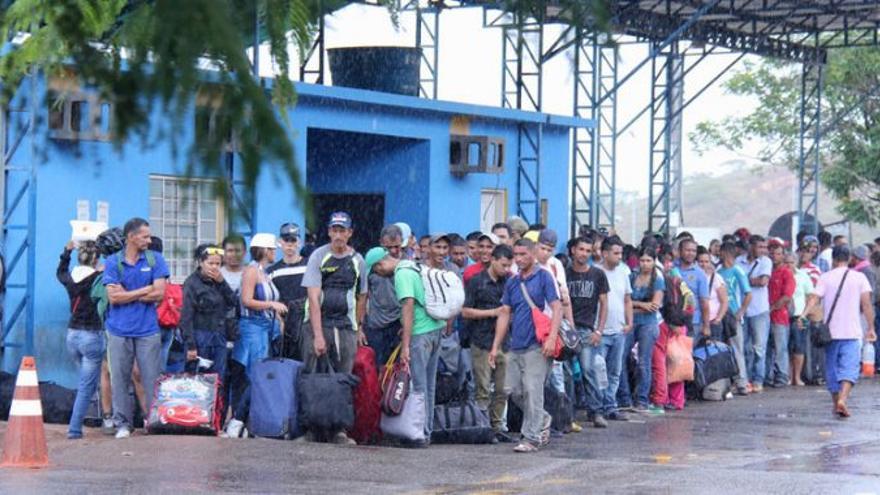
![]() 14ymedio/EFE, Havana, 11 June 2023 — The United Nations High Commissioner for Refugees (UNHCR) stated on Saturday that Venezuelan asylum seekers in Trinidad and Tobago continue to be vulnerable to abuse, exploitation and a multitude of problems.
14ymedio/EFE, Havana, 11 June 2023 — The United Nations High Commissioner for Refugees (UNHCR) stated on Saturday that Venezuelan asylum seekers in Trinidad and Tobago continue to be vulnerable to abuse, exploitation and a multitude of problems.
Last week, the Anti-Trafficking Unit of Persons of the Ministry of National Security revealed that the police were investigating allegations of abuse presented by a Venezuelan woman who had been arrested at the Chaguaramas heliport, in the northeast of the island of Trinidad.
The authorities stated that after an investigation of the complaints there was no evidence of sexual abuse at the heliport. The UNHCR stated that refugees and asylum seekers in Trinidad and Tobago “cannot regularize their immigration status, enroll in official educational institutions, access medical care or work legally.”
It said that “when it is unavoidable, governments must guarantee access to legal assistance and advice.” Likewise, the High Commissioner said he was willing to help the Government “to establish reception mechanisms that offer alternatives to the detention of refugees and migrants.”
A total of 16,523 Venezuelans received for the first time a permit from the Government of Trinidad and Tobago in 2019 that authorized them to live and work in the Caribbean country and that was extended, but without meeting expectations.
For their part, several Cuban refugees in the country have also denounced the difficulties in processing their asylum applications and the close surveillance to which the Cuban Embassy in Port of Spain subjects those who emigrated from the Island. This is the case of Carlos Jiménez Vasco and his Russian wife, Daria Jiménez.
The couple escaped to Havana from St. Petersburg (Russia) after the invasion of Ukraine, to avoid the possible recruitment of Carlos, and they also fled Cuba for Trinidad on April 18, after disagreements with his family — supporters of the regime — and pressure from State Security.
According to Jiménez, the problem of Cuban refugees begins with the UNHCR itself, which does not adequately manage cases. There has been little progress with the asylum process, even after the couple’s campaign to be noticed and attention from the independent media.
Interviewed by this newspaper on May 24, Jiménez noted the precarious conditions of refuge to which he has been subjected and said that “every day is a new battle for survival.” “Although the Government of Trinidad and Tobago signed the UN agreements on refugees, it did not ratify them, and that is why it isn’t complying with them,” he complained.
“Only words and no protection,” Jiménez summarized the situation in the Caribbean country. He and his wife also suffered “a scam” by those who hosted them. “We had to sleep with rats three nights in a row,” he said at the time. When denouncing the situation in the Living Water Community – “UNHCR’s right arm in Trinidad” – the officials seemed to suggest that the owners of the house were right. Carlos faced them and recalled that, as asylum seekers, they also had the right to be treated as human beings.
Several days ago, Jiménez again denounced the stagnation of the situation and the lack of attention by the officials, to which he added the surveillance of the agents of the Cuban Embassy. In contact with several refugees from the Island, they told him that they had the impression that Trinidad and Tobago – one of Cuba’s allied countries in the region – practices a “discriminatory policy” against Cubans, and the migration services make them wait several years before giving them a response about their process.
Translated by Regina Anavy
____________
COLLABORATE WITH OUR WORK: The 14ymedio team is committed to practicing serious journalism that reflects Cuba’s reality in all its depth. Thank you for joining us on this long journey. We invite you to continue supporting us by becoming a member of 14ymedio now. Together we can continue transforming journalism in Cuba.
